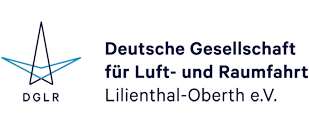DGLR-Publikationsdatenbank - Detailansicht
Autor(en):
A. Thoma, A. Fisher, C. Braun
Zusammenfassung:
We present the concept of extending the px4 avoid algorithm for more reliable and flexible obstacle avoidance of non-cooperating, static obstacles. Besides the hard requirements that the algorithm has to fulfill, several soft requirements are presented. As the latter are less stringent, they have to be weighed against one another for each mission because their importance differs according to mission type. To fit the needs of different mission types, the px4 avoid algorithm is used as a basis and is controlled by a master function adjusting its cost parameters. This master function takes importance of the different soft requirements, depending on mission time, into account. To improve robustness, the master function additionally contains modules inspired by the behavior of bumblebees in challenging obstacle situations. This behavior is achieved by a speed controller that adapts the flight speed according to the lateral distance to obstacles, thereby influencing the turning radii of the UAV. Additionally, bumblebee behavior inspires a module, which triggers the vertical evasion of distant obstacles and the horizontal evasion of close obstacles. Finally, the master function has a separate element for goal approaches that overrules the normal flight behavior. This overruling allows different speed adaptions and specific obstacle approaches close to the goal.
Veranstaltung:
Deutscher Luft- und Raumfahrtkongress 2020
Verlag, Ort:
Deutsche Gesellschaft für Luft- und Raumfahrt - Lilienthal-Oberth e.V., Bonn, 2023
Medientyp:
Conference Paper
Sprache:
englisch
Format:
21,0 x 29,7 cm, 10 Seiten
URN:
urn:nbn:de:101:1-2023011115250287663830
DOI:
10.25967/530183
Stichworte zum Inhalt:
Bio-Inspired, Obstacle Avoidance
Verfügbarkeit:
Kommentar:
Zitierform:
Thoma, A.; Fisher, A.; Braun, C. (2023): Improving the px4 Avoid Algorithm by Bio-Inspired Flight Strategies. Deutsche Gesellschaft für Luft- und Raumfahrt - Lilienthal-Oberth e.V.. (Text). https://doi.org/10.25967/530183. urn:nbn:de:101:1-2023011115250287663830.
Veröffentlicht am:
11.01.2023
